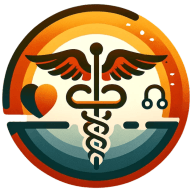What Patient-Centered Innovations Improve Patient Care Quality?
Healthcare leaders are at the forefront of integrating innovative solutions to enhance patient care, with a Plastic Surgeon & Medical Director highlighting the transformative impact of 3D imaging in surgery. Alongside expert perspectives, we present additional answers that reflect a diverse array of patient-centered innovations, from the revolutionizing promise of personalized medicine to the integration of predictive analytics. These insights offer a glimpse into the future of healthcare, where technology and patient empowerment converge to improve outcomes.
- 3D Imaging Technology Personalizes Surgical Care
- Online Tools Make Care Accessible
- Predictive Analytics Enhance Proactive Care
- Blockchain Secures Medical Records
- VR Therapies Assist in Pain Management
- Wearable Devices Enable Continuous Monitoring
- Personalized Medicine Tailors Care
3D Imaging Technology Personalizes Surgical Care
Advanced imaging technology has made a significant impact on personalized care in aesthetic surgery. Specifically, the LifeViz camera has transformed our surgical planning and patient-outcome documentation. This 3D imaging technology captures consistent before-and-after photos with precise details on surface texture and volumetric changes, enhancing surgical accuracy and patient understanding. It strengthens communication, allowing patients to visually grasp the expected changes, thereby boosting their confidence.

Online Tools Make Care Accessible
Online patient scheduling is a great example of a patient-centered solution that works well: it empowers the patient, making care accessible. Telehealth, too, permits access to care and, when used well with patient education tools and data management (via intakes, monitoring devices, results trackers, etc.), can be very powerful in supporting the patient's lifelong health journey. We have chosen to use both at Midi Health as tools to support the best care with great patient success.
Predictive Analytics Enhance Proactive Care
AI-driven predictive analytics represent a transformative approach to healthcare, enabling doctors to forecast potential health complications before they arise. This innovation assists medical professionals in crafting preemptive treatment plans, thereby enhancing the efficiency of patient care. The use of machine learning algorithms to analyze large volumes of data means that subtle health trends can be identified, which might otherwise go unnoticed.
This proactive stance in healthcare not only improves outcomes but also reduces the strain on medical resources. Consider how embracing this technology could bolster the health system in your community.
Blockchain Secures Medical Records
Blockchain technology offers a revolutionary method for handling patient medical records with increased security and efficiency. It allows for a decentralized system wherein information can be shared among healthcare providers without risking patient privacy. As records are immutable and traceable, this innovation reduces the likelihood of errors and fraud.
A more streamlined process for accessing medical histories leads to quicker and more accurate diagnoses and treatments. Explore how blockchain can enhance privacy and care in your local healthcare facilities.
VR Therapies Assist in Pain Management
Virtual reality (VR) has opened up new avenues in the management of chronic pain, offering patients an escape from discomfort through immersive, therapeutic experiences. By leveraging VR, healthcare professionals can provide a form of distraction therapy which has been shown to reduce the perception of pain and thus the reliance on pain medications. Furthermore, VR can assist in rehabilitation, providing engaging environments for patients to perform exercises that may otherwise be tedious.
Such an application of technology illustrates its potential beyond entertainment, serving as a tool for improved well-being. Encourage your local health services to consider the benefits of VR for pain management.
Wearable Devices Enable Continuous Monitoring
Wearable devices have introduced a new dimension to patient care by offering continuous health monitoring outside the traditional clinical setting. These gadgets track vital signs and other health metrics which can be reviewed by healthcare professionals in real-time, leading to timely interventions. They empower patients to take an active role in managing their own health, with the added benefit of potentially detecting issues early on.
With the data provided by wearable technology, more personalized and responsive healthcare becomes a reality. Take a step towards better health by staying informed about wearable technology options.
Personalized Medicine Tailors Care
Personalized medicine is a cutting-edge approach to disease treatment and prevention that takes into account an individual's unique genetic makeup. It moves away from the one-size-fits-all methodology, offering treatments and prevention strategies that are more effective for each person. This tailoring of healthcare not only increases the likelihood of successful outcomes but can also minimize the risk of side effects.
As research in genetics continues to advance, the potential for personalized medicine to revolutionize patient care grows ever more promising. Advocate for genetic research and personalized care in your community for more targeted healthcare solutions.

